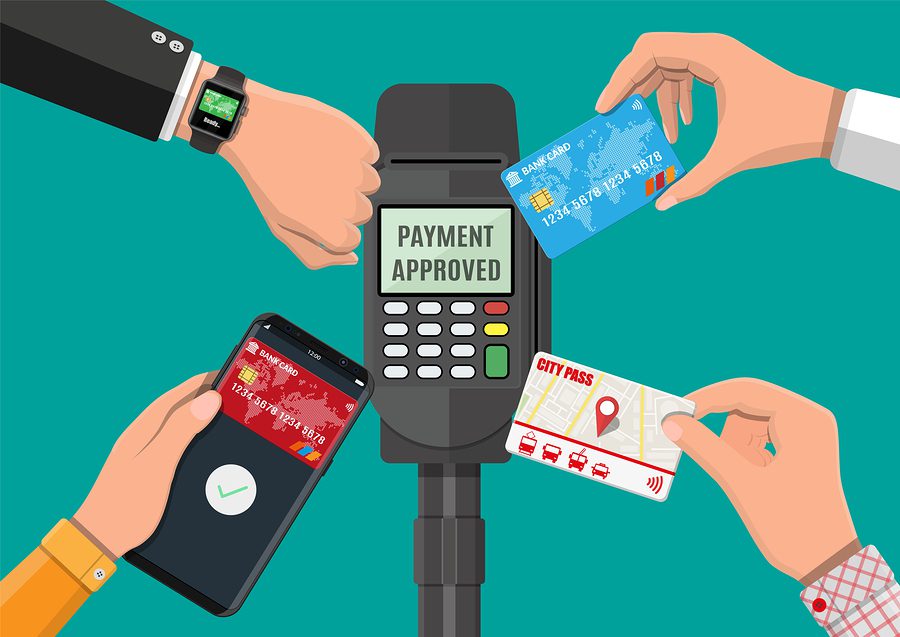The Future of Cashless Payments in the Digital Economy: Who’s Leading the Charge?


Across the globe, businesses and consumers are embracing cashless payment systems at an unprecedented pace. The rise of mobile wallets, contactless payments, and cryptocurrency transactions is transforming the digital economy, making transactions faster, safer, and more efficient. As more industries integrate seamless payment solutions, Europe is emerging as a leader in the cashless revolution, with fintech startups, digital banks, and blockchain innovations paving the way for a future without physical cash.
The gambling industry is one of the sectors benefiting from this transformation. iGaming companies have adapted by incorporating instant payment methods, allowing players to enjoy real-time gaming experiences without the hassle of traditional banking processes. The ability to deposit and withdraw funds instantly has made these platforms more appealing, enhancing both user experience and security.
The Driving Forces Behind Cashless Payments
The shift towards a cashless economy is being fueled by several key factors:
1. The Rise of Mobile Payments and Digital Wallets
Mobile payment platforms like Apple Pay, Google Pay, and PayPal have revolutionized the way people handle transactions. The convenience of tapping a phone or smartwatch to complete a payment has significantly reduced the reliance on cash and even traditional bank cards. In Europe, countries like Sweden and the Netherlands have seen a drastic decline in cash usage, with some businesses going completely cashless.
For online entertainment platforms, including gaming and e-commerce, the integration of digital wallets has made transactions seamless and secure. This is particularly beneficial for industries requiring fast, verified transactions, such as online gambling and live dealer casinos.
2. Fintech Innovations and Open Banking
Fintech startups are disrupting traditional banking by offering faster, more flexible payment options. Open banking initiatives in Europe, such as PSD2 (Payment Services Directive 2), allow customers to manage their finances through third-party providers, enabling direct transactions without intermediaries. This fosters competition and innovation in the payments sector, making it easier for businesses and consumers to access alternative payment solutions.
Live dealer casino platforms are leveraging these innovations to provide players with instant deposits and withdrawals, improving the overall gaming experience. The ability to move funds in real time is becoming a key differentiator in the competitive online gaming market.
3. The Expansion of Cryptocurrency and Blockchain Payments
Blockchain technology is playing a crucial role in the evolution of cashless payments. Cryptocurrencies like Bitcoin, Ethereum, and stablecoins are becoming more widely accepted as legitimate forms of payment, particularly in industries where privacy and security are key concerns.
For the online gaming sector, cryptocurrency transactions eliminate the need for intermediaries, providing faster payouts and reducing transaction fees. Many of the best live dealer casinos have started accepting Bitcoin and other digital currencies, allowing users to place bets in a more anonymous and decentralized manner. This trend aligns with the growing preference for digital assets in mainstream financial transactions.
4. Government Policies and Regulatory Support
Governments and financial regulators are playing a significant role in accelerating the shift toward cashless payments. The European Union has been actively promoting digital payments through regulatory frameworks that encourage innovation while ensuring security and compliance.
In some countries, policymakers are even discouraging cash transactions in favor of digital alternatives. Sweden, for example, aims to become a fully cashless society by 2030. The UK and Germany are also witnessing a decline in cash usage, with businesses increasingly adopting contactless and mobile payment options.
Challenges in the Cashless Economy
While the transition to a cashless society brings numerous advantages, it is not without challenges:
- Cybersecurity Risks: With the rise of digital transactions, cyber threats such as hacking and fraud have also increased. Businesses must invest in robust security measures to protect customer data.
- Financial Exclusion: Not everyone has access to digital banking services. Elderly populations, low-income individuals, and those in rural areas may struggle to adapt to a completely cashless system.
- Regulatory Uncertainty: While innovation in fintech is booming, regulations around digital payments, cryptocurrencies, and financial technologies are still evolving, creating potential roadblocks for businesses operating in this space.
What’s Next for Cashless Payments?
The future of cashless payments is likely to be shaped by ongoing technological advancements and evolving consumer preferences. Some trends to watch include:
- AI-Driven Payment Processing: Artificial intelligence is expected to enhance fraud detection, transaction approval speeds, and personalized financial services.
- Biometric Authentication: Payments through facial recognition, fingerprint scanning, and even voice recognition will become more common, improving security and user experience.
- Central Bank Digital Currencies (CBDCs): Many central banks, including the European Central Bank, are exploring the introduction of digital currencies to complement or replace physical cash.
Conclusion
The global economy is moving toward a cashless future, with Europe leading the way in fintech innovation and digital payment adoption. From mobile wallets to blockchain-based transactions, businesses and consumers are embracing new ways to manage their finances. As digital payments become the norm, industries like online gaming are already reaping the benefits of real-time transactions, enhanced security, and seamless user experiences.
For industries like online gambling, where fast and secure transactions are critical, the integration of instant digital payments is a game-changer. iGaming companies are at the forefront of this evolution, leveraging cashless solutions to provide an enhanced, frictionless gaming experience. As technology continues to evolve, the digital economy will further reshape the way we interact with money, making cash transactions a thing of the past.
The post The Future of Cashless Payments in the Digital Economy: Who’s Leading the Charge? appeared first on European Business & Finance Magazine.
















































